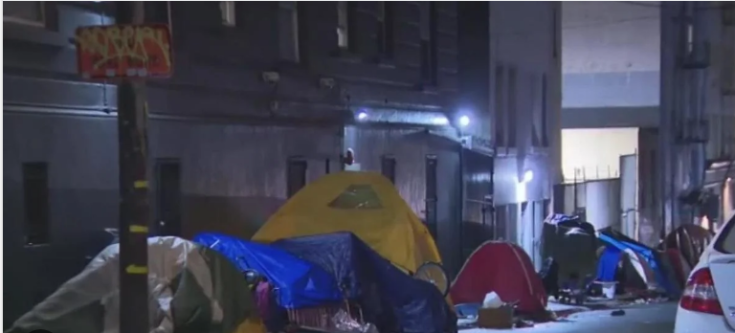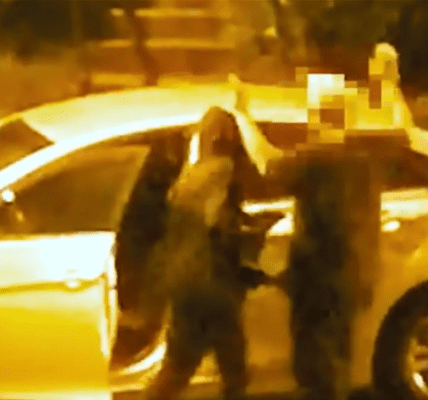Supreme Court to Weigh Constitutionality of Anti-Camping Rules: A Crucial Verdict on Homeless Rights
“Grant Pass, Oregon’s Ordinances Under Scrutiny as the Nation Awaits a Landmark Decision”
The U.S. Supreme Court is set to examine the constitutionality of city-enforced rules restricting homeless residents from camping on public property, framing a pivotal moment in the ongoing debate on homelessness and constitutional rights. Originating from Grants Pass, Oregon, the case questions whether such ordinances violate the Eighth Amendment’s protection against cruel and unusual punishment. As the nation grapples with a growing homelessness crisis, this legal battle may reshape how cities address and regulate encampments, influencing policies and practices across the country.
The Case in Grants Pass, Oregon

Grants Pass, Oregon, serves as the epicenter of this legal battle, with three ordinances in question, barring sleeping on public sidewalks, streets, and camping on publicly owned property. Homeless residents facing civil citations and potential exclusion from city parks challenged these ordinances, arguing they criminalized their existence due to the lack of adequate shelter options. A federal district court sided with the plaintiffs, deeming the enforcement of anti-camping ordinances, especially in the absence of sufficient shelter options, as cruel and unusual punishment under the Eighth Amendment. The subsequent appeal to the U.S. Court of Appeals for the 9th Circuit upheld the district court’s decision, setting the stage for Supreme Court intervention.
National Implications and Jurisprudential Conflict
The Supreme Court’s decision holds significant implications for the broader debate on homelessness and constitutional rights. The Ninth Circuit’s ruling, covering states like California and Arizona, has triggered concerns about the potential paralysis of local communities in addressing homelessness. Critics argue that restricting the enforcement of anti-camping rules may exacerbate issues like crime, fires, public health concerns, and drug-related incidents in public spaces. On the other hand, advocates for homeless rights contend that these ordinances disproportionately punish individuals for involuntary status, violating their constitutional rights. The conflict between preserving public spaces and ensuring the rights of homeless individuals creates a complex legal landscape that the Supreme Court must navigate.

City of Grants Pass Appeals and Counterarguments
In response to the Ninth Circuit’s ruling, the City of Grants Pass appealed to the Supreme Court, highlighting the detrimental impact of limited enforcement on public safety and well-being. The city’s legal representatives argued that judicial restrictions hinder a comprehensive response to the surge in public encampments, leading to dire consequences for residents and neighboring communities. However, advocates for the homeless assert that the city’s ordinances effectively criminalize basic survival actions, pushing homeless individuals into neighboring towns. As the legal battle intensifies, the contrasting perspectives underscore the challenging task faced by the Supreme Court in balancing public interests and individual rights.
National and Statewide Relevance
The homelessness crisis extends beyond Grants Pass, making this Supreme Court decision reverberate across the nation. Major states like California and Arizona, grappling with significant homeless populations, are closely watching the case. Top officials from these states, including California Governor Gavin Newsom, have urged the Supreme Court to intervene, emphasizing the impact on services provided to homeless individuals. Cities like Phoenix, San Francisco, and Los Angeles view anti-camping ordinances as essential tools for maintaining public spaces, urging the Court to consider the broader implications on local governance and public safety. This case serves as a critical juncture for addressing the nationwide challenge of homelessness within the framework of constitutional rights.
Anticipation of a Landmark Verdict
Read More News:
- Seattle’s Struggle: Homeless Man Persists in Damaging Dr. Jose Rizal Park Despite Arrest
- Leonard Bernstein: A Maestro’s Legacy of Music, Passion, and Innovation
As the Supreme Court prepares to deliberate on the constitutionality of anti-camping rules, the nation anticipates a landmark decision that will shape the legal landscape surrounding homelessness. The delicate balance between public order and individual rights requires a nuanced approach, considering the unique challenges faced by homeless individuals. Regardless of the verdict, this case will influence the trajectory of policies addressing homelessness, forcing a critical examination of the constitutional dimensions involved. The outcome will resonate far beyond Grants Pass, becoming a touchstone for future debates on the intersection of constitutional rights and societal issues.




